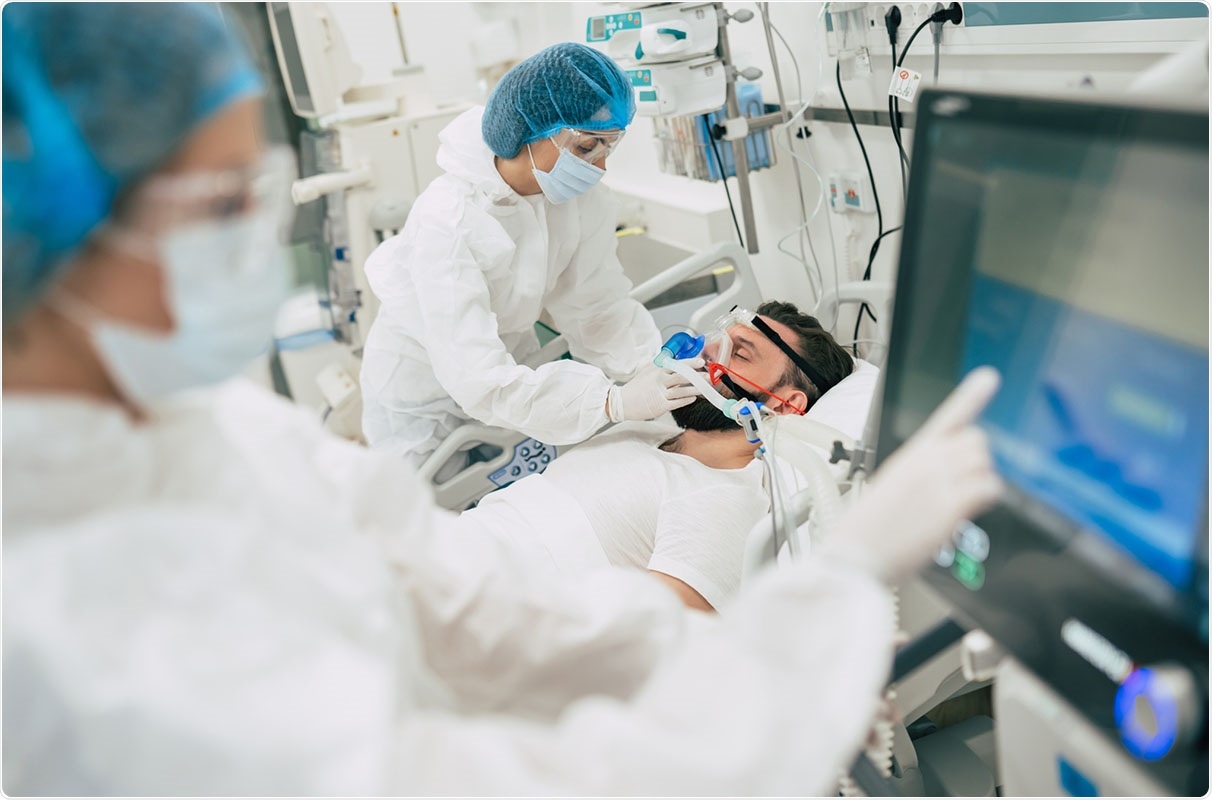A viral protein might contain information that could be used to avoid pneumonia due to the body’s overactive response to respiratory viruses, such as COVID-19.

Image Credit: Povozniuk on iStock.
One such viral protein is the NS2 of the Respiratory Syncytial Virus (RSV). In a recent study, researchers found that, if the virus lacks this protein, the human immune system can destroy it before exaggerated inflammation occurs. The study was performed at Washington State University’s College of Veterinary Medicine and was published on January 18th, 2022, in the journal MBio.
The RSV, like other respiratory viruses, including the COVID-19-causing SARS-CoV-2 virus, affects the lung cells that are responsible for gas exchange. RSV uses these lung cells as factories to multiply viruses. The uncontrolled multiplication of viruses in these cells results in severe swelling, lung diseases like pneumonia, and could also be fatal.
Exaggerated inflammation clogs the airways and makes breathing difficult. This is why people who have these long-term and severe inflammatory responses get pneumonia and need help breathing, and it’s why they end up in the hospital in the ICU.”
Kim Chiok, Post-doctoral Researcher, Washington State University
The research was headed by Kim Chiok.
By studying how respiratory viruses, such as RSV, Chiok and fellow WSU scientists are laying the framework for breaking this cycle. The National Institute of Allergy and Infectious Diseases report that RSV causes 160,000 deaths annually, especially in infants, children, the elderly, and those with compromised immune systems.
The study was conducted in the laboratory of Professor Santanu Bose, who works at WSU’s Department of Veterinary Microbiology and Pathology. Chiok, a Fulbright Scholar from Peru who earned her doctorate at WSU, has been researching the mechanisms that regulate the virus-host fight for over two and a half years in the Bose laboratory.
To determine viral functions, the researchers used virus-lacking genes that code for specific viral proteins, which they compared to wild strains of the virus.
The virus has a series of tools, some tools with multiple functions, we wanted to learn about these tools by essentially taking them away.”
Kim Chiok, Post-doctoral Researcher, Washington State University
Each tool represents a different viral protein.
Chiok marked the viral NS2 protein as the vital controller that regulates autophagy—a cellular process that controls immune defenses during viral infection. A cellular protein called Beclin1 mediates autophagy.
Beclin1 identifies and dispels the threat as soon as it enters the cell. Through the process of ISGylation, it attaches to certain smaller gene proteins. It is mostly like Beclin1 is putting on a suit of armor, added Chiok.
Research revealed that RSV’s NS2 protein eliminates the “armor” from Beclin1, enabling the virus to survive and replicate inside the cell, causing it to spread to other cells and inciting an exaggerated inflammatory response from the body leading to airway diseases like pneumonia. As long as the virus lacks the NS2 protein, it is routinely destroyed by Beclin1.
In a way you are disabling NS2’s ability to modulate the cell’s immune defense mechanism. You can use therapeutics to target that protein, and potentially transfer this concept to other respiratory viruses like influenza A virus and SARS-CoV-2.”
Kim Chiok, Post-doctoral Researcher, Washington State University
Source:
Journal reference:
Chiok, K., et al. (2022) Human Respiratory Syncytial Virus NS2 Protein Induces Autophagy by Modulating Beclin1 Protein Stabilization and ISGylation. mBio. doi.org/10.1128/mbio.03528-21.